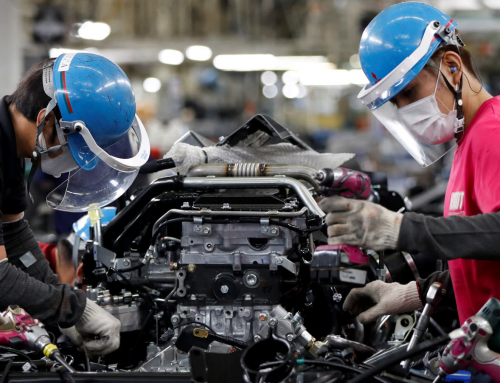KUALA LUMPUR: GrabTaxi Holdings Pte Ltd, whose roots can be traced back to Malaysia, received a major boost in its challenge to keep up with the market share fight in the taxi booking mobile application market with a US$250mil (RM864mil) investment from Japan’s Softbank Corp.
The investment, which was made through SoftBank Internet and Media, Inc (SIMI), is the largest for GrabTaxi, which is known as MyTeksi in Malaysia.
It is also among the largest, if not the largest, Internet company in South-East Asia.
The company that provides the mobile taxi booking application was founded by Anthony Tan and Hooi Ling Tan, both Harvard Business School graduates, in 2011, according to a statement from the company.
Anthony is the grandson of Tan Sri Tan Yuet Foh, the co-founder of the Tan Chong group of companies.
MyTeksi currently serves 17 cities across six countries in South-East Asia, including Malaysia, the Philippines, Thailand, Singapore, Vietnam and Indonesia.
Through the strategic investment and partnership with MyTeksi, the SoftBank group aims to further build its presence in South-East Asia and maximise synergies with its network of Internet companies around the world.
Nikesh Arora, the vice-chairman of SoftBank Corp and chief executive officer of SIMI, said in a statement that in two years MyTeksi had become the dominant player in South-East Asia’s taxi booking mobile app industry, which is a testament to Anthony’s outstanding leadership.
“We look forward to working with his team and supporting MyTeksi’s further expansion in the region,” he said.
SIMI will become the largest investor in GrabTaxi, Anthony told Bloomberg in an interview in Bangkok yesterday, without providing stake details.
GrabTaxi has raised about US$340mil (RM1.18bil) in the last 14 months, it said in a statement. GrabTaxi’s funding comes as rival Uber is said to be close to raising a round of financing that would give it a valuation of as much as US$40bil (RM138bil).
Ride-hailing apps on smartphones are gaining popularity across the world by providing transportation alternatives, with the investment by SoftBank adding to the 1,300 made by the Tokyo-based technology company.
“We will do whatever it takes to ensure that we maintain our leadership in an ethical and moral way,” Anthony was quoted by Bloomberg. “It’s a fight for market share. We’re many, many times bigger than our closest competitors and we intend to grow that fast.”
GrabTaxi counts Singapore’s Temasek Holdings Pte Ltd and Alibaba Group Holding Ltd backer GGV Capital among its investors.
There were now 500,000 active users who used the app at least once a month, up six-fold from a year earlier, GrabTaxi said. It received about three taxi bookings every second across the region, the company said.
SoftBank, founded by Masayoshi Son in 1981, controls wireless carriers in Japan and the United States, as well as owning the largest stake in Alibaba Group Holding.
In October, the unit of SoftBank said it would lead an investment of US$210mil (RM726mil) in ANI Technologies Pvt, which offers a taxi booking service called Ola Cabs in India.
Uber has been attempting to gain a foothold in the region despite multiple regulatory tangles and already fierce competition.
Within South-East Asia, Uber is said to operate in the same six markets as GrabTaxi, after entering Singapore last year. It does not release operational statistics.
Malaysian and Indonesian authorities have said Uber services that utilise private vehicles are illegal, while Thai authorities last week indicated that they are also banning the service.
Other major taxi apps in South-East Asia include Indonesia’s Blue Bird, regional player EasyTaxi, backed by German start-up incubator Rocket Internet, as well as London-based Hailo, which operates in Singapore.
Taxi-hailing apps have become popular in South-East Asia, especially Singapore, one of the most expensive places in the world to own a private car.
Finding a cab during peak hours and during frequent tropical downpours can be difficult in the city-state, which last month said it planned to start regulating third-party taxi booking services for the first time.
Heavy traffic in cities such as Manila and Jakarta also makes finding taxis tough.
Those troubles are benefiting apps such as GrabTaxi. The apps are seen as revolutionising the taxi industry, which has long been plagued by inefficient cartels and price-gouging drivers.






